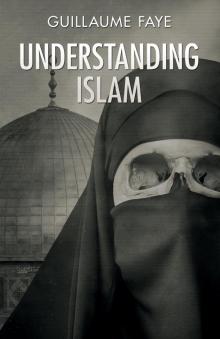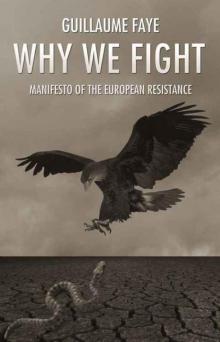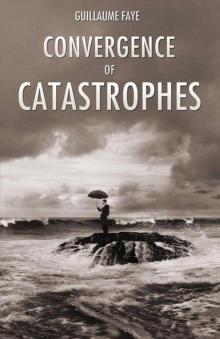Understanding Islam, page 2




One thus sees that since the very beginning, Muhammad’s behaviour, which is set as an example for all Muslims to follow, has had no peaceful aspect whatsoever and has been the complete opposite of the ‘righteousness’ that characterises the values of Greco-Roman philosophy and European Christianity. Unlike Jesus Christ who, declaring himself Theou uios soter (Son of God and Saviour), never strived to interfere in politics or war, rejected any and all personal benefits, did not plot to have anyone assassinated, preached love and forgiveness and confined himself to the spiritual sphere, Muhammad, the founder of Islam, sets a completely different example with his conduct. He is a religious preacher, God’s sole spokesman, a political conspirator, a brutal warrior and a monocratic leader whose actions are not be restricted in any way, all in one person. It is Muhammad’s personality that was to have a profound impact on Islam, a religion that adopted him as its supreme model. It also accounts for two further facts: firstly, the complete fusion of religion and politics (as well as the merger of faith and law), and secondly, the justification of a cynical and uncompromising morality in the expansion of Islam, with the prevalence of a dictatorial leader legitimised by a rigid ideology and surrounded by a caste of willing accomplices.
Therein lies the very root of Islamic politico-religious totalitarianism. In addition, by practicing treachery as an example to follow (‘the end justifies the means’), Muhammad has instilled into Islam a power rooted in justified lies, a legitimated double discourse and the breaking of promises. But what he has also endowed it with is an extraordinary strength, a strong-willed, conquering and aggressive power that the Bedouin tribes of Arabia had lacked thus far. Does the doctrine of Mohammed express the deepest Arab mentality, a mentality that represents its infrastructure? Or is it the case, quite to the contrary, that the doctrine professed by the ingenious Muhammad has failed to influence the mentality of the Arabs and that of all the other peoples who converted to Islam? Let anthropologists decide on the answer to these questions.
Defying all those pseudo-secular Islamophiles terrorised by Islam, I would dare to argue that Muhammad is either an impostor or a mystic who convinced himself of his own miraculous encounter with the archangel Gabriel. Or, indeed, perhaps both. The Koran, the divine word that he supposedly heard and passed on, was nothing short of pure invention on his part (one that was later improved upon by his successors) in order to establish and consolidate his own power in accordance with his own interests and exalted desire for conquest. I personally favour the hypothesis that Mohammed was either an absolute atheist or a pretentious man who ended up believing in his own delusions. He invented his own god, a schizophrenic projection of himself. And it worked.
The Koran’s Inconsistencies — a Locked Religion
Upon the prophet’s — or rather the oracle’s — death in 632, the Koran was but a rough version of what it is today, differing greatly from the latter. Since Muhammad himself was illiterate, it merely comprised a set of texts collected haphazardly by his literate followers or learned by heart through oral tradition, including his extolled sermons, orations and conversations, gathered in a rather disorderly fashion. This, however, was of no importance — for the Koran is the word of God, or rather that of Allah, to use the right terminology, this overhanging deity whose existence, by the way, predated Islam among henotheistic Bedouin tribes.3
The idea that this initial Koran is a sacred and timeless text (the direct word of God) surfaces: it is recited in the form of chanted verses. In an effort to avoid even the slightest alteration, Uthman, the third caliph, has this oral tradition set down in a single written version, or second Koran, which is pretty much the one that we are familiar with today, but the result is a highly contradictory and disorderly compilation. It is as if Allah was unable to collect his thoughts.
Indeed, the Suras (or chapters) contradict each other. Some are peaceful and spiritual, while others belligerent and intolerant. The former date back to the period when Muhammad was in Mecca, the latter to the time when he led a rebellion in Medina. In short, there is a noticeable inconsistency between the Suras. The explanation for this is that Muhammad delivered his sermons according to changes in the political situation through plain calculating behaviour, in an attempt to reinforce his power over his accomplices. Some Suras call for murder and intolerance, others for peace. The content is marked by rational inconsistency, for the concept of reason, in the Greek, Roman and European sense of the word (logos, ratio), remains completely incomprehensible to the Islamic worldview.
The notion of ‘abrogating’ and ‘abrogated’ Suras was therefore coined in order to resolve the Koran’s mystifying contradictions. Depending on the circumstances, some Suras apply whereas others do not, a fact that is completely incompatible with the supposed divine and absolute nature of the Koran. The verses that were written at a chronologically later time annul and abrogate (mansukh) previous verses. In this manner, more than 100 peaceful verses are abrogated by the sole content of a single verse, namely the ‘verse of the sword’ (IX, 5), whose substance is truly hostile.4
Nevertheless, the fact remains that, overall, the Koran, which targets uneducated and semi-educated populations (possibly even some fascinated intellectuals), has great appeal. It provides solutions to everything and prevents people from thinking for themselves. The power of the Koran lies indisputably its poetic, compelling and haunting character. It is written in a beautiful form of classical Arabic, which makes it one of the literary monuments of humanity alongside the works of Homer, the Hebrew Bible, the Christian gospels and the Bhagavad-Gita. Its weakness is that it is mere dogma that crushes any individual freedom of thought, a theocratic and ideological manual advocating totalitarianism.
The very nature of the Koran, considered to be the unabridged ‘word of God’ ever since the days of Muhammad, does not stand up to rational analysis, since it has constantly been rewritten and manipulated to suit the circumstances. But what is shocking today is that those who question the divine origin of this text and denounce it as ideologically dangerous and intellectually stultifying are threatened (and sometimes murdered), even in a ‘secular’ country that proclaims its attachment to freedom of expression such as France, especially if they are Muslims by birth and thus considered apostates and traitors. By contrast, one luckily runs no risk when disputing the divine nature of Christ and blaspheming against all other religions. All of this is meant not to offend and ‘stigmatise’ Muslims, who everyone is basically afraid of. Are we to revert to the same situation with regard to Islam as the one that prevailed during the 18th century when Catholicism was the state religion and one was forbidden to challenge its veracity or ridicule it? Talk about mental regression…
***
People’s ignorance of the true nature of Islam, their underestimation of its dangers and the idea that it is comparable to Christianity and Judaism stem, at least in part, from the fact that Western leaders and intellectuals have not read the Koran nor the Hadiths (i.e. the accounts of Muhammad’s deeds and words), which every Muslim is required to abide by and follow. In addition, translations are deliberately altered and softened so as to disguise the Koran’s true content. Under normal circumstances, it is in classical Arabic, the language of Allah in the eyes of all Muslims, that it should be read.
As for ‘Islamic science’, it focuses on understanding and learning to interpret the Koran and the Hadiths, which is in itself a very poor endeavour when compared to the Jewish and Christian theologies, which have a large variety of texts at their disposal. This allows the latter to enjoy a flexibility that secures them against fundamentalists. However, in Islam, the quantitative poverty of the texts and their rigid nature prohibit any form of adaptation and legitimise fundamentalism as being the only acceptable attitude. Contrary to Christian theology, which is not solely based on the Old and New Testaments but relies on a considerable number of other canonical texts and writings set down by the Church Fathers, ‘Islamic theology’ rests exclusively upon the monolithic block of the Koran and the Hadiths (a collection of stories and statements about Muhammad). In the words of François-Xavier Robert5 , Islam is a ‘locked’ religion. It is to supersede Judaism and Christianity, both considered flawed, and there can be no further Revelation after it. For Muslims, Muhammad is the ‘seal’ of all prophets, meaning the last one. Jews and Christians are seen as having altered and falsified the divine message. Islam is thus convinced of its profound truthfulness and nurtures an absolute absence of scepticism regarding its precepts. Cartesian doubt is entirely foreign to it, as is any critical mindset, which sets it apart from most other religions and philosophies. This mental inclination not only prevents any and all possible adaptation, but legitimises doctrinal rigidity and grants its adepts the right to consider every moderator or ‘moderniser’ of Islam, as well as anyone who strives to relegate this religion to the level of personal spirituality (the Sufis), to be a deviant and a schismatic traitor.
Account taken of the fact that the Koran is the very word of the sole omniscient God, one cannot remove a single word from it nor add one, which is in blatant contradiction with the concept of abrogated and abrogating verses. But never mind ... What matters is that this mixture of doctrinal rigidity and opportunism epitomises the power of Islam. Being the word of God, the Koran is eternal and timeless and true Islam is consubstantial with it. Neither one can therefore be adapted to our era nor ‘modernised’, notions that are looked upon as absurd by all true Muslims, who remain essentialists and reject any concept of evolution. Those who dream of an ‘Islam of Enlightenment’, one that would embrace secularism, are either Westerners who do not understand this religion or utopian Muslims who, while deserving our utmost respect, face a great deal of difficulty these days. Within the genuine Muslim doctrine, any interpretation of the Koran is currently impossible, all prospects of evolution denied and every commentary prohibited. According to ‘scholars’ (i.e. Muslim theologians), all reflections and commentaries on the sacred texts at the hands the Ulama, muftis and jurists have been brought to a halt: the ‘Gates of Ijtihad’ (meaning those of independent reasoning) were closed once and for all during the 10th century.
The Sunnis and the Shiites — Enemy Brothers
In the Yemen, Iraq and Syria, the religious war between the Sunnis and the Shiites, which has lasted for over a thousand years, has resumed once again. The Sunni jihadists of the Islamic State (Daesh) are the most barbarous and the most savage. They have already conquered much of Iraq and Syria and infiltrated Libya. They view the Shiite Iraqi government (a government that has taken over from Sunni dictator Saddam Hussein) as well as Iran, of course, as their enemies. In the Yemen, the same intra-religious war has been raging, with the Sunnis benefiting from the help of Saudi Arabia. Historically speaking, it should however be noted that it was paradoxically Shiite Iran, under the leadership of Khomeini, that revived Islam’s great global offensive in 1979. Just like its fellow Gulf monarchies and other Muslim autocracies or kingdoms, the rulers of Saudi Arabia only combat Islamic fundamentalism so as to preserve their own power. They still practice a rigorous but cunning form of Islam, one that is meant to respect the sensitivities of their Western clients.
A schizophrenic syndrome thus often surfaces: on the one hand, certain regimes fund Islamism (and thus participate in jihad) while, on the other, fighting it solely on their own soil so as not to be overthrown.
The Sunnis, who are greater in number, claim to be the representatives of true Islam and consider the Shiites to be schismatic and semi-profane. Of the two, the former are the most violent. They say that they embody the true tradition (Sunnah) of the Prophet Muhammad which, according to them, was preserved in the successive caliphates of Damascus, Baghdad, Cairo and Istanbul. The Shiites form the ‘faction’ (Shi’a) of Ali, Muhammad’s adopted son, who managed to become the fourth caliph. However, his authority was immediately challenged by the governor of Damascus, Muawiya, the founder of the Umayyad dynasty. In 680, caliph Yazid I, whose father was none other than Muawiya himself, slew Ali’s son (Hussein) during the battle of Karbala, making the latter the holiest of places in the eyes of all Shiites.
It can therefore be seen that Islam, which is a product of the Arab ethnosphere, quickly found itself enmeshed in a contradiction involving its defence of a unifying doctrine and of the notion of a strong community held together by a common faith and struggle, and a simultaneous addiction to internecine feuds and power struggles. This situation has not yet changed, as Islam’s cultural and anthropological base has remained the same throughout the centuries.
The Sunnis only revere the Prophet Muhammad and his teachings, whereas the Shiites venerate their ‘twelve imams’ in addition to the prophet himself. Moreover, Sunni Muslims adhere to a strict reading of the Koran, unlike the Shiites, who have encouraged various interpretations and schools of thought and have their own clergy, which is not the case of the Sunnites. It is hardly a matter of surprise that Shi’ism has been adopted by the Iranians, as this attests to their Persian mentality, a mentality that is more flexible than that of the Arabs. One might thus be inclined to think that Sunni Islam, which is of purely Arab origin, differs from the Shiite form, which, owing to its Iranian-Persian influence, remains more open. It was during the early 16th century, in fact, that Persia renounced Sunnism in favour of Shi’ism, in an attempt to evade Ottoman rule. Moreover, unlike Christianity with its Byzantine Orthodoxy and the Protestant Reformation, the main schism that has been tearing Islam asunder has had relatively little theological and intellectual motivation. Instead, it is founded upon underlying rivalries, war conflicts and ethnic enmity and deeply rooted in power struggles.
The sanguinary conflict between the Sunnis and the Shiites has been rekindled because of the Anglo-American invasion of Iraq and the overthrowing of Saddam Hussein’s regime, a situation that has resulted in utter chaos. Another crucial point should be made here if one is to understand the predominantly Sunnite Muslim-Arab mentality, a mentality characterised by a propensity for turnabouts, changes of allegiance, extremism and shifts from apparent moderation to fanaticism: some of the soldiers and officers belonging to the Sunni Islamic State (Daesh), whose actions mirror the peak of obscurantism and barbarism, were at one point members of Saddam Hussein’s army and self-declared ‘secular’ regime (Baath), which protected the Christian population! It thus becomes clear that the potential for a radical return to the sources could very well be lurking behind the apparently moderate discourse of numerous Muslims, a radicalism that may awaken at any given moment.
The rebirth of the Sunni-Shiite war of religion dates back to the attack against the Golden Mosque (a Shiite sacred sanctuary) in Samarra, Iraq, perpetrated by a Sunni commando affiliated with al-Qaida on the 22nd of February 2006. Since then, sanguinary attacks against Shiite mosques and markets have been on the increase throughout the Middle East. The Shiites (who represent 55% of the Iraqi population) are currently backed by Iran, while Saudi Arabia supports the Sunnis (25%) and engages in double-dealing with regard to the Islamic state. In this reawakened intra-Muslim war, it is the Sunnis who display the greater fanaticism. A general hostility towards the ‘West’ has been cropping up as well, as the war metastasises into further Muslim countries: Lebanon, Syria, Saudi Arabia, Kuwait, Bahrain, Iraq, the Yemen and Pakistan.
Indeed, it is Sunnism that is spearheading this global offensive and radicalisation of Islam. Sunni jihadists have been recruiting their fighters among the immigrant populations of Europe. In their eyes, Shiites are apostates that must be executed, similarly to Christians. Unless something is done, this blood-thirsty jihad, led by Sunnis who consider themselves the very sword of Allah and currently ravaging numerous countries from Nigeria to Pakistan, will soon flood our European lands, even if it does lack the centralised consistency that typified the totalitarianism of the former communist bloc. Instead, it feeds on local and regional conflicts and relies on mob-like tribal strategies. However, beyond this apparent disorder and religious war against the Shiites, it is the rising power of a radical Sunni Islam that has come to the forefront, a power that seeks a return to Islam’s age-old totalitarian roots and whose objectives are to be applied on a worldwide scale. This issue will be covered at a later point.
The Close-Mindedness of Islam
Whether in Africa, the Middle East or the Indian subcontinent, the populations that have been raised within a Christian (or different) culture are not just remarkably more efficient than the Muslims, but also less aggressive and more open-minded in their everyday behaviour and worldview. Travellers who visit India, the Middle East and sub-Saharan Africa can easily notice that the populations that have resisted Islamisation have thereby evaded Islam’s inherent close-mindedness. What accounts for this fact is the dogmatic nature of Islamic education in the madrasas (Islamic schools). Their teachings lead both to intolerant brutality and the replacement of personal thought patterns with dogma, which is synonymous with the decline of intelligence and creativity.
In fact, such teachings rely on the ingurgitation of dogmas, rules, rigid prohibitions and mental associations that extirpate every principle of free inquiry (when Suras are learned by heart, for example) and permeate the mind with the idea that Islam is a revealed and indisputable truth that must be embraced by all of mankind and whose destiny is to dominate the planet, becoming the sole source of thought and doctrine. Paradoxically, this close-mindedness draws upon cunning and concealment, which are recommended whenever the balance of power is not in the Muslims’ favour. Strangely, this psychological rigidity and mental flexibility coexist within the Muslim mentality.



















